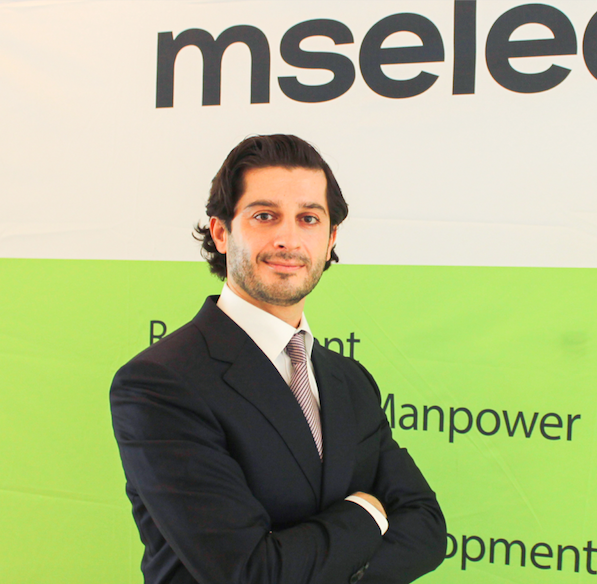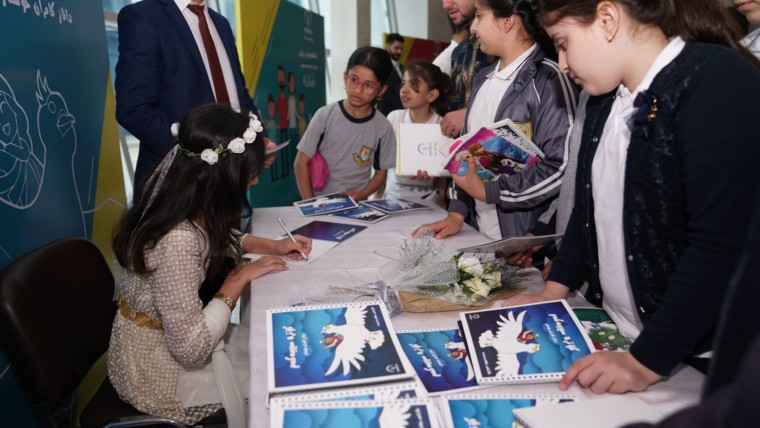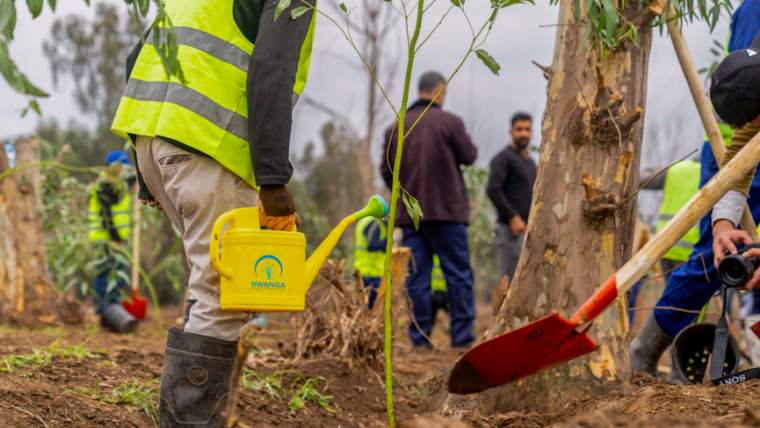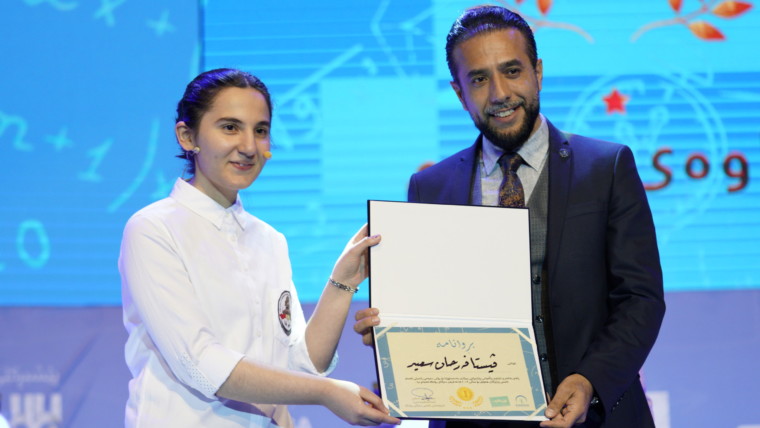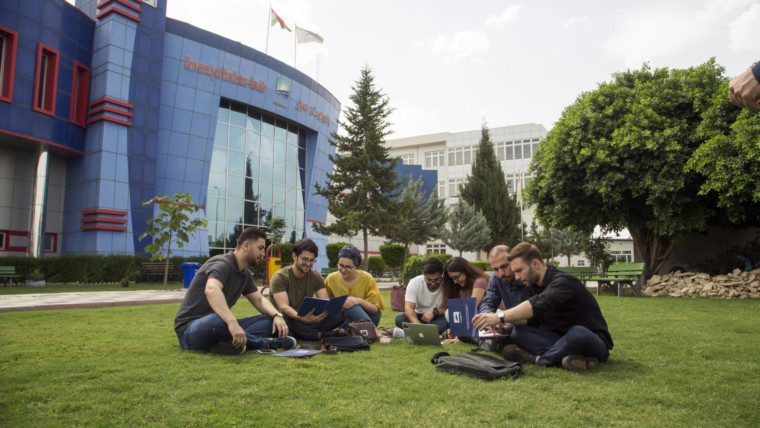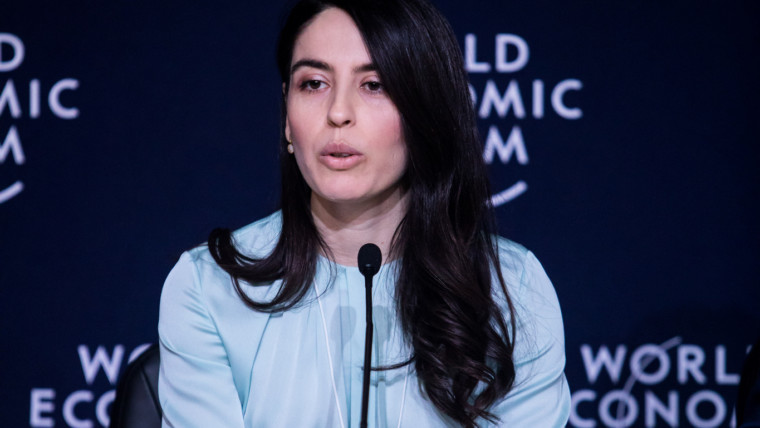Haller Miran on the state of human capital in Kurdistan, recruiting industry trends, and MSelect’s key initiatives.
How would you assess the state of human capital in Kurdistan?
Every country has its struggles, and we have had our fair share. Over the last few years, we have battled with conflicts and recessions, to name a few.
However, we have made leaps and bounds of progress in human capital. Unemployment, for example, has dropped from 14% in 2016 to 10% in 2019 (according to the KRSO), lower than all our neighbouring countries, which is an incredible achievement.
We have also transformed our education system from an outdated model that wasn’t preparing students for the workplace sufficiently, to a new and more effective approach.
In the last 18 months, the government has added much-needed practical TEVT programs that were previously missing from our education system. It is also working closely with the private sector and international development agencies to promote and incentivise internships.
In the past, we lacked communication and collaboration between government, local businesses, and our education systems in the area of skill development, which has since drastically improved.
If we compare the state of Kurdistan today to what it was just a few years ago, it is plain to see we have made impressive progress. There are more education options, more jobs, salaries are higher, and employers have to try harder to attract talent.
Even many in the diaspora, who left due to the downturn in the economy from 2014 – 2017, are now applying for local jobs. This is an indication that they want to return to Kurdistan and rebuild their lives here.
If we compare the state of Kurdistan today to what it was just a few years ago, it is plain to see we have made impressive progress. There are more education options, more jobs, salaries are higher, and employers have to try harder to attract talent.
Haller Miran, CEO, MSELECT
What has the Kurdistan Regional Government been doing to improve human capital?
We have seen many positive changes in recent years, and we are now seeing excellent support from the government in these areas.
For example, the Ministry of Natural Resources (MNR) implemented a localisation program designed to transfer skills from experienced expatriate staff to local nationals in the Kurdistan region.
The MNR program aims to meet the demands for a skilled workforce with training, enforced immigration control, and a reduction of the number of jobs going to lesser-skilled expatriate workers.
The localisation program has been working well since its inception, and we now have a strong base of local workers in the oil & gas industry.
We have noticed that the oil & gas companies we work with are taking the matter seriously and investing in training the local workforce to suit their needs, rather than hiring expatriates.
As a result, we at MSELECT have been meeting the demand by adding to our courses and delivering training on-site, at our head office, and abroad.
The KRG is also taking responsibility for educating and training the unemployed, with more initiatives such as apprenticeships, internships, and national training centres on the horizon.
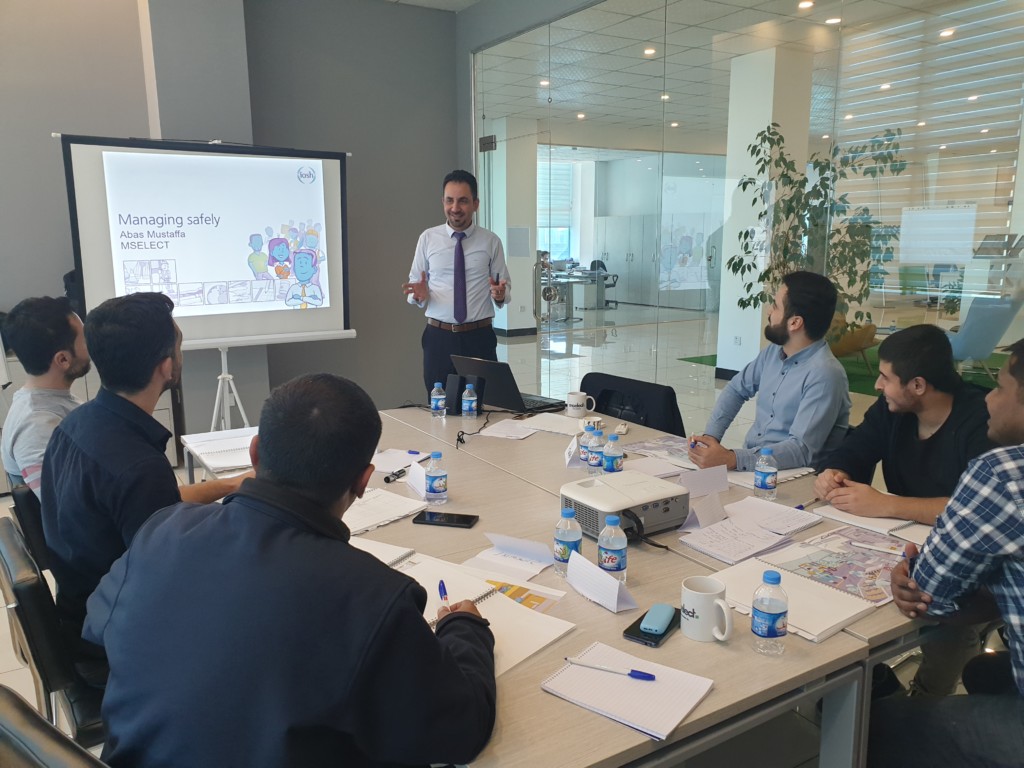
Is the private sector in Kurdistan supporting the government’s efforts?
Yes, there are companies in the private sector that are stepping in to support the government’s efforts to solve the challenges we’re facing in job creation, education, and training.
For example, at MSELECT, we train, recruit, and develop talent in Kurdistan. We have grown to become the leader in the staffing industry not only in Kurdistan but throughout Iraq, with three offices in country as well as three offices abroad.
Our success and rapid growth are a direct result of the quality of our recruitment, outsourcing, payroll, HR consulting, training, and development services.
In Kurdistan, we have used our position to invest heavily in adding internationally certified programs to our MSELECT Academy catalogue. For example, there is a strong demand for health & safety certification, which is why we now deliver courses from IOSH and OSHA.
These internationally designed and certified programs allow us to offer world-class training to local people so they can improve their skills, increase their value to employers, and be more productive in the workplace. We have also recently partnered with the KRG’s Ministry of Labour to develop new locally accredited vocational training programs.
At MSELECT, we train, recruit, and develop talent in Kurdistan. We have grown to become the leader in the staffing industry not only in Kurdistan but throughout Iraq, with three offices in country as well as three offices abroad.
Haller Miran, CEO, MSELECT
What other initiatives in Kurdistan are you a part of?
The success of MSELECT has also allowed us to invest in initiatives to create an ecosystem of businesses that support the local Kurdish community.
In 2017, we launched TechHub, the country’s first co-working hub, at our MSELECT facility. It is designed to support start-ups by providing the network, community, and resources they need to thrive.
We also host an online newsletter, “Bite.Tech,” where we discuss start-up and tech news in Iraq and feature local start-ups. Our mission is to promote and grow the local entrepreneurial scene and providing a platform for start-ups to share what they’re working on.
Another exciting initiative we’re a part of is Orange Corners Erbil. It is a program funded by the Dutch government to develop, mentor, and support start-ups with a focus on hydro and agriculture. We were recently chosen to manage their project in Kurdistan, and are running the initiative from TechHub.
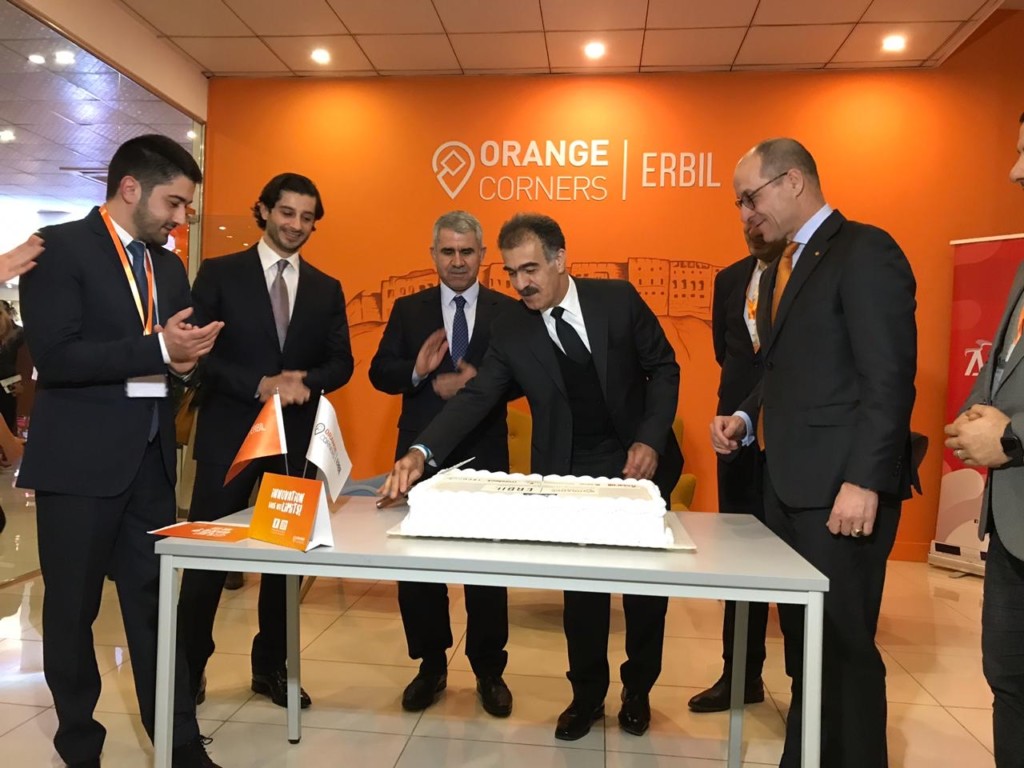
At MSELECT, international corporations often approach us when they need development plans for their staff. In these cases, we tailor solutions based on their needs, which can include anything from health & safety training to IT technical development.
For example, we recently managed a literacy program for one of our oil & gas clients who wanted to develop their rural Kurdish staff’s Arabic and Kurdish competence.
After six months of the program, we managed to transform these individuals into proficient Arabic and Kurdish readers and writers. As you can imagine, this has had an enormous impact on the productivity, efficiency, and potential of our client’s personnel.
In 2019, the MSELECT Academy was also involved in an initiative to train 40 recent graduates in the foundation of health and safety over 4 weeks.
The effort offered a free HSE training program sponsored by the German Corporation for International Cooperation (GIZ) in partnership with the KRG’s Ministry of Planning and the Kurdistan Federation of Chambers of Commerce and Industries.
The goal of the training was to provide students with the skills needed to position themselves better and gain employment as HSE professionals, predominantly in the oil & gas and power industries.
In Mosul, we also hosted a motivational and team building program sponsored by the GIZ to improve the Ministry of Labour’s human and organisational capacity to address social and economic challenges.
Another exciting initiative we’re a part of is Orange Corners Erbil. It is a program funded by the Dutch government to develop, mentor, and support start-ups with a focus on hydro and agriculture. We were recently chosen to manage their project in Kurdistan, and are running the initiative from TechHub.
Haller Miran, CEO, MSELECT
What future trends do you see coming in the recruiting industry in Kurdistan?
The recruiting landscape in Kurdistan has evolved over the last decade and is moving away from a predominantly government workforce to a private-sector economy. This shift will change the skills that are in demand in Kurdistan.
Sales & marketing,
IT, manufacturing, and finance are the functions where I predict high demand
soon. As things are now, we are facing severe shortages of skilled talent in
these areas in Kurdistan.
Our educators and training institutes will play a vital role in the future of
talent in these areas and determine whether the shortage worsens, or we take
advantage of the growth and fill positions as needed.
Another major trend is in the transition from word of mouth to recruitment agencies and job sites. Back in 2012, most recruiting was done by word of mouth, yet we’re now seeing significant demand from local employers who want to source talent from agencies and job websites.
The recruiting landscape in Kurdistan has evolved over the last decade and is moving away from a predominantly government workforce to a private-sector economy. This shift will change the skills that are in demand in Kurdistan.
Haller Miran, CEO, MSELECT
What industries will become key employers?
In my opinion, agriculture is an industry that needs more attention in Kurdistan. It is the biggest employer globally, yet in Kurdistan, it is an underdeveloped sector.
History has shown that investing in agriculture can transform a nation. The massive spike in economic growth and employment during the Industrial Revolution in 19th-century Europe was a direct result of their development of agriculture.
It is no coincidence that the Orange Corners Erbil program is focused on supporting start-ups in the agriculture sector. After all, the Dutch government are the global leaders in this sector.
The population of our region is very young, with about 50 percent of residents aged 20 years old or younger. Studies have projected that in the next 20 years, there will be a significant shift in demographics and an increase in youth workers in our local labour force.
Haller Miran, CEO, MSELECT
What trends do you see in youth employment in Kurdistan?
We have a young workforce eager to work in good jobs. Today, almost 1.2 million people aged 15 years or older are in the labour force, meaning they either have some form of work or are actively seeking work. This is about 40 percent of the population aged 15 years or older.
The population of our region is very young, with about 50 percent of residents aged 20 years old or younger. Studies have projected that in the next 20 years, there will be a significant shift in demographics and an increase in youth workers in our local labour force.
Capitalising on the gig economy and the flexible, reliable freelance work it provides could help provide jobs for tech-savvy and skilled youth in Kurdistan.
This concept is already massively successful around the world, but not yet in Kurdistan. Currently, the labour laws in Kurdistan are restrictive in terms of schedule and temp work and don’t provide flexible options to employees or the employers.
We recently launched StaffPlace, a gig hiring app for temp and short-term work, to meet the growing demand for such a platform.
Overall, we need to see a continued commitment to value young people from the government and educators in Kurdistan if we want to best support their needs and maximise their value.
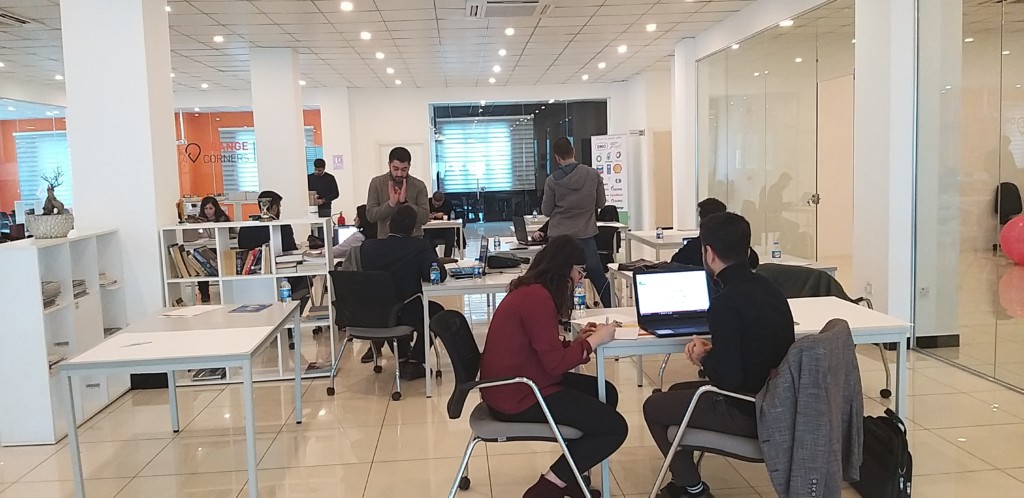
How can we better utilise women in the Kurdish workforce?
I’m a firm believer in the importance of diversity and the need to get past old taboos and cultural limitations.
Women are valuable workplace assets that are often overlooked in developing countries; however, great strides have been made in Kurdistan. At MSELECT, many of our international clients comment positively on the diversity of candidates applying for roles.
Of those females in jobs, 80% are in government positions. I think we should focus on transitioning many of these educated, skilled women into private sector roles that would potentially be a more productive use of their talent.
If we want to have a strong economy and resolve our skill shortage, we need to get more women in the workforce and provide better training.
I read somewhere that our female unemployment rate is similar to that of Turkey, which is an excellent achievement. However, we need to continue to improve our position by preparing more women for the workforce, particularly in the private sector.
We need to encourage and support women by ensuring employers provide safe transport to and from work, more reasonable working hours, and remote working and eLearning opportunities. All of which have been noticeably improving in our region.
The Kurdish people have an unwavering desire to learn, improve, and grow their skills and value in the workplace. What’s remarkable is that despite the setbacks we have faced in the region, the quality, professionalism, and motivation of our people remain.
Haller Miran, CEO, MSELECT
How would you define the character of the Kurdish people?
The Kurdish people have an unwavering desire to learn, improve, and grow their skills and value in the workplace. What’s remarkable is that despite the setbacks we have faced in the region, the quality, professionalism, and motivation of our people remain.
This transcendent optimism is what has driven and will continue to drive rapid growth in Kurdistan. Many of the businesses we provide Kurdish staff for are pleasantly surprised by the quality of the local talent pool.

